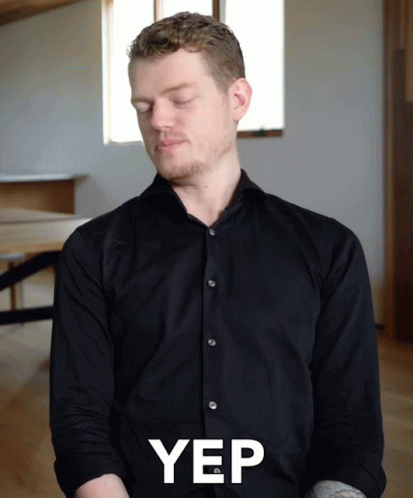http://twitchy.com/dougp/2023/07/27/ex-federal-prosecutor-explains-why-judge-in-hunter-biden-case-smelled-a-rat-n2385764
Yesterday a judge in Delaware put the Hunter Biden plea deal on hold after noticing that some shenanigans were in the works:
What was presumed to be a routine appearance before a judge by Hunter Biden on Wednesday â one set to finalize a plea deal reached between President Joe Biden's son and the president's Justice Department â turned into courtroom chaos when the proposed plea deal fell apart under scrutiny from U.S. District Judge Maryellen Noreika.
Due to issues with the way the sweetheart slap-on-the-wrist was "structured," the judge refused to "accept or reject the plea agreement" on Wednesday, instead requesting briefs from the parties in order to gather more information about the terms of the deal and whether they're even constitutional.
As a result of losing his plea deal â for now at least â Hunter Biden entered a "not guilty" plea on the tax and firearm charges he still faces.
Andy McCarthy spotted a great summary of why the hearing unfolded (and fell apart for Biden) the way it did:
Andy McCarthy (@AndrewCMcCarthy) ~ This is an excellent assessment of what happened.

Will Scharf (@willscharf) ~ Based on conversations with people who were in the courtroom today, and my experience as a former federal prosecutor, I think I know the full story of what happened with the Hunter Biden plea agreement blow-up this morning.
Bear with me, because this is a little complicated:
Typically, if the Government is offering to a defendant that it will either drop charges or decline to bring new charges in return for the defendant's guilty plea, the plea is structured under Federal Rule of Criminal Procedure 11(c)(1)(A). An agreement not to prosecute Hunter for FARA violations or other crimes in return for his pleading guilty to the tax misdemeanors, for example, would usually be a (c)(1)(A) plea. This is open, transparent, subject to judicial approval, etc.
In Hunter's case, according to what folks in the courtroom have told me, Hunter's plea was structured under Federal Rule of Criminal Procedure 11(c)(1)(B), which is usually just a plea in return for a joint sentencing recommendation only, and contained no information on its face about other potential charges, and contained no clear agreement by DOJ to forego prosecution of other charges.
Instead, DOJ and Hunter's lawyers effectively hid that part of the agreement in what was publicly described as a pretrial diversion agreement relating to a § 922(g)(3) gun charge against Hunter for being a drug user in possession of a firearm.
That pretrial diversion agreement as written was actually MUCH broader than just the gun charge. If Hunter were to complete probation, the pretrial diversion agreement prevented DOJ from ever bringing charges against Hunter for any crimes relating to the offense conduct discussed in the plea agreement, which was purposely written to include his foreign influence peddling operations in China and elsewhere.
So they put the facts in the plea agreement, but put their non-prosecution agreement in the pretrial diversion agreement, effectively hiding the full scope of what DOJ was offering and Hunter was obtaining through these proceedings. Hunter's upside from this deal was vast immunity from further prosecution if he finished a couple years of probation, and the public wouldn't be any the wiser because none of this was clearly stated on the face of the plea agreement, as would normally be the case.
Judge Noreika smelled a rat. She understood that the lawyers were trying to paint her into a corner and hide the ball. Instead, she backed DOJ and Hunter's lawyers into a corner by pulling all the details out into the open and then indicating that she wasn't going to approve a deal as broad as what she had discovered.
DOJ, attempting to save face and save its case, then stated on the record that the investigation into Hunter was ongoing and that Hunter remained susceptible to prosecution under FARA. Hunter's lawyers exploded. They clearly believed that FARA was covered under the deal, because as written, the pretrial diversion agreement language was broad enough to cover it. They blew up the deal, Hunter pled not guilty, and that's the current state of play.
And so here we are. Hunter's lawyers and DOJ are going to go off and try to pull together a new set of agreements, likely narrower, to satisfy Judge Noreika. Fortunately, I doubt if FARA or any charges related to Hunter's foreign influence peddling will be included, which leaves open the possibility of further investigations leading to further prosecutions.
In other words ...
Andrea E (@AAC0519) ~ They tried to bury Hunter Biden's immunity deal.

Bingo! And the judge didn't let it slide.
Paul Sperry (@paulsperry_) ~ They put the facts in the plea agreement, but put their non-prosecution agreement in the PRETRIAL DIVERSION AGREEMENT, effectively hiding the full scope of what DOJ was offering Hunter. His upside from this deal was vast immunity from further prosecution.
Matt Beebe (@TheMattBeebe) ~ They were basically trying to give him a pardon without explicitly giving him a pardon.
Itâs breathtaking how in one moment they weaponize the law to entrap the innocent, and in another moment they fashion a perfectly crafted hole to let certain guilty people free.
Fusilli Spock (@awstar11) ~ Very good explanation of what happened today with Hunter's plea deal fiasco. DOJ was trying to pull a fast one.
And yet those same people mock suggestions that there's a "two-tiered justice system."
Joel Pollak (@joelpollak) ~ The DOJ is corrupt as hell and Merrick Garland needs to be held accountable by Congress for trying to cover for the Bidens.
Will there be accountability? Stay tuned.

The essential American soul is hard, isolate, stoic, and a killer. It has never yet melted. ~ D.H. Lawrence
